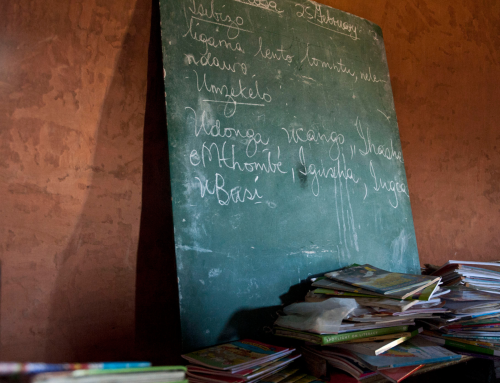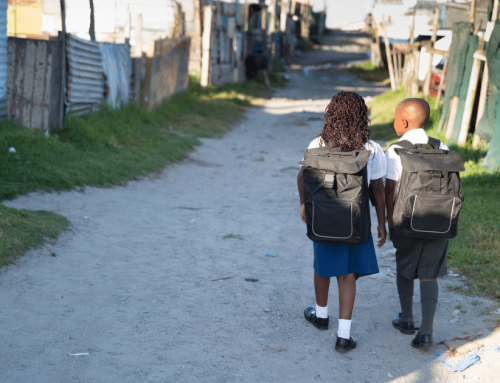Advisory opinion: An opportunity for environmental justice action

Recent International Court of Justice and Inter-American Court of Human Rights Advisory Opinions on climate change set binding obligations for states to address this emergency. Ten INCLO members reflect on these guidelines following their joint submissions to both advisory opinions.
In less than two months, some of the world’s highest courts have spoken about one of the biggest challenges of our era: the climate emergency. The Inter-American Court of Human Rights (IACtHR) and the International Court of Justice (ICJ) both issued advisory opinions that set promising legal standards about States’ obligations to address climate change. The ten undersigned INCLO member organizations contributed to these processes with a submissionand an amicus curiae to offer a human rights approach on climate justice. We consider the following advancements set by the advisory opinions constitute a relevant framework for climate action.
The recognition of a climate emergency and its link to human rights. Both courts acknowledged the existence of a climate crisis that has been produced unequally by human actions, and its unequal effects on human rights across the globe. They also recognized the tight link between the right to a healthy climate and the exercise of other fundamental rights. Some of these, as we expressed in our submissions, include the right to life, personal integrity, prohibition of discrimination, freedoms of expression, among others, all of them in regard to future generations.
This connection may sound evident, but it’s been only a few years since international law has started to address climate change as a human rights issue and not merely a technical matter. Furthermore, the IACtHR highlighted the threats the climate emergency poses to democracies and how historically marginalized populations are more vulnerable to the effects of climate change.
States are legally obligated to address climate change. Both advisory opinions determined that all States (no matter if they are part of the climate treaties or not) have a legal obligation to act on climate change. These obligations vary depending on countries’ historical responsibilities and capabilities, as we argued in our submission: “major polluters bear financial responsibility for greenhouse gas emissions and must undertake more ambitious climate action, but this does not absolve less polluting states from taking climate action of their own.”
Some of the States’ obligations outlined in the opinions include adopting concrete measures to limit emissions, regulate activities that aggravate the crisis, design adaptation policies, and cooperate with each other through financial assistance, technology transfer and capacity-building. The ICJ also made a clear statement that fossil fuel expansion could carry legal consequences for States.
Obligations in the intersection with civic space. The IACtHR’s Advisory Opinion recalled States’ obligations to fulfill some procedural rights that are key in the context of the climate crisis: the rights to public participation, access to information, access to justice, the recognition of local knowledge, and the right to defend human rights. We agree with the relevance of protecting these rights, since the struggle against climate injustice can only be undertaken with communities and citizens actively on board.
Goals cannot be arbitrary.One of the major areas where the ICJ’s Advisory Opinion could serve as a tool for influence is the Nationally Determined Contributions (NDCs), the 5-year plans that every country should design and publish to reduce its emissions and reach the goal of limiting global temperature rise to 1.5°C by 2030. So far, these plans have been far weaker than expected: according to the World Resources Institute, countries will need to reduce emissions by more than five times their last NDCs to align with the 1.5-degree goal.
In this context, the ICJ judges underscored that States are obliged to apply their “highest possible ambition” and “ensure that their NDCs fulfill their obligations under the Paris Agreement.” Furthermore, as we argued in our submission, the ICJ confirmed that national and international courts are allowed to review the adequacy of mitigation goals and plans. This opens an opportunity for civil society to hold States accountable, particularly with the upcoming deadline (September 2025) to submit the latest NDCs.
Obligations to provide reparations and finance. The ICJ pointed out that States must provide reparations to those who have been harmed by climate change. This includes, but is not limited to, financial contributions to the loss and damage fund. This is an important step towards enforcing polluting states to supply climate finance. However, the ICJ did not provide details on the amounts and forms of reparations, which we consider must include debt relief and cancellation.
Agora (Russia)
Centro de Estudios Legales y Sociales – CELS (Argentina)
Dejusticia (Colombia)
Egyptian Initiative for Personal Rights
Kontras (Indonesia)
Irish Council for Civil Liberties
Human Rights Law Centre (Australia)
Legal Resources Centre (South Africa)
Hungarian Civil Liberties Union
Kenya Human Rights Commission




